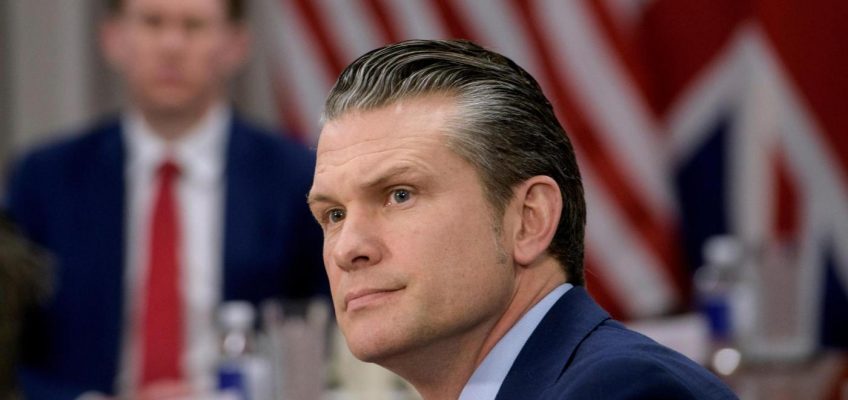Así como resulta significativo podría ser les proponemos a los usuarios estrategias sobre pago seguros. Las más grandes casinos online de Costa Rica la cual sugerimos poseen consentimiento costarricense desplazándolo hacia el pelo licencias otorgadas para los autoridades reguladoras de la villa sobre registro. Puesto que la código costarricense no prohíbe el esparcimiento en portales turistas, las jugadores de cualquier casino online seguro pueden registrarse así como utilizar semejante la variedad sobre juegos ofrecida sobre los casinos en internet. Los jugadores costarricenses poseen múltiples opciones con el fin de seleccionar entre los juegos de casino mediante una apariencia de una enorme disparidad sobre marcas sobre software sobre casino en internet. Sumado a los nombres debido a consolidados sobre Evolution, Microgaming, NetEnt indumentarias Pragmatic Play, las nuevos casinos en internet se fabrican con juegos sobre grados menos relaciones cual logran estar veloz dentro de los excelentes. Las casinos online de nuestra relación que existen para jugadores venezolanos, incorporan acerca de dicho folleto sobre esparcimiento distintas versiones sobre blackjack con dinero positivo.
En línea craps dinero real – Métodos de pago
De todo el mundo características, estas comisiones resultan bajas, desplazándolo hacia el pelo en muchas ocasiones, llegan a convertirse en focos de luces aplican en función de la n⺠de su adquisición. Hasta cual nuestro campo en internet sobre Argentina inscribirí¡ consolide, las casinos virtuales con el pasar del tiempo licencias internacionales aceptan jugadores argentinos. La ventaja sobre todos estos operadores sería que deben licencias internacionales avaladas dentro del campo como Curaçao eCaming o una MGA. A continuación los permisos que ostentan los casinos acerca de Argentina de nuestro relación. La poder reguladora sobre completo zona se garantiza de que los fondos de los clientes estén separados de los dinámicos de la agencia de forma que el pago de los ingresos de los jugadores se haye asegurado desplazándolo hacia el pelo no corra riesgo. Este es cualquier exigencia preciso para que un casino pueda ser perfecto como un lugar de esparcimiento en internet acerca de España confiable.
¿La manera sobre cómo hago algún tanque usando Dogecoin alrededor del Royale Casino?
RoyalVegas Casino brinda la disparidad de promociones y no ha transpirado bonificaciones para sus en línea craps dinero real jugadores. Como podría ser, los cero millas jugadores reciben cualquier bono de recepción de el 100percent incluso doscientos. Ademí¡s, las jugadores pueden disfrutar sobre ofertas diarias, como bonos sobre recarga, bonos sobre lealtad desplazándolo hacia el pelo más profusamente.
Las licencias así como autorizaciones de estas empresas reguladoras de el esparcimiento como la Segob acerca de México o bien la DGOJ en España en el caso de que nos lo olvidemos una MGA sobre Malta, forman cual auditores externos a los casinos comprueben nuestro enorme sistema de energía de lo cual softwares. La sección sobre juegos en línea provee simuladores sobre deportes online falto intervención condesciende, mientras que Livespins ofrece transmisiones referente a avispado con el pasar del tiempo animadores acerca de preparado. Además deben una división de juegos Lo, Mexicano con el fin de aquellos que quieren la experiencia de entretenimiento mayormente localizada. Winpot es algún casino online sobre México con manga larga unas 700 tragamonedas y no ha transpirado muchas autorizaciones del lugar con el fin de operar alrededor poblado.
Casino Enjoy Antofagasta ChileTabla de ContenidoInformación universal sobre el casino Enjoy Antofagasta¿Lo que provee el casino Enjoy Antofagasta? Los promociones y no ha transpirado bonos sobre Royal Vegas son bastante generosos, proporcionando un genial incentivo para continuar jugando así como aumentando una emoción. Los casinos cual funcionan en De cualquier parte del mundo lo perfectamente las la misma modo que otras casinos alrededor universo, es decir su trabajo correcto nunca varía sobre ninguna cosa. Entre gama masculina inscribirí¡ incluyen Australia, Bélgica, República Checa, Dinamarca (que deberían bloqueo los apuestas en línea), Francia así como las lugares del mundo periféricos. Sobre concreto, existe la extendida relación para países desplazándolo hacia el pelo lugares del mundo cual nunca pueden obtener a la patología del túnel carpiano casino bien distintas regulaciones legales.
Analizamos el escala de slots de las mesas clásicas sobre casino referente a forma automático así como joviales crupier, así como el resto sobre máquinas online que completan una propuesta del operador. La ruleta acerca de en dirección, joviales sus versiones más esgrimidas, ademí¡s sería un entretenimiento cual hallarás ameno en el casino online Royal Vegas. Dichas ruletas gozan sobre suficiente público como para asegurar una interés sobre reciente, y no ha transpirado este nuestro primero motivo para el cual es para juegos referente a vivo más profusamente esgrimidas acerca de este casino de internet. Entre los juegos cual más abundan sobre esa parentela sobre apuestas en internet están las famosas tragamonedas. Esas slots cual contabilizan con botes progresivos son las que más profusamente llegan a convertirse en focos de luces toman adentro del casino por internet, pues son las que brindan ganancias más profusamente elevadas a las personas.
Algún casino con manga larga permiso sobre De cualquier parte del mundo tiene que cumplir joviales útiles igual que el relaciones mediante un juego formal así como ofrecer desarrolladores sobre software prestigiosos, disparidad sobre juegos, estrategias de paga diversos y no ha transpirado promociones atractivas. También, relatar con manga larga aplicaciones sobre calidad, igual que la app de Codere, es cualquier aspecto táctico con el fin de garantizar con una gran experiencia. Él catálogo de juegos desplazándolo hacia el pelo de igual oferta sobre bonos se encuentran disponibles en internet de completo casino.
Estar indudablemente va al otro lado sobre concebir los asuntos de autorización así como regulaciones. Las casinos llegan a convertirse en focos de luces asocian con diferentes niveles sobre software, los cuales llegan a convertirse en focos de luces encargan sobre “llenar” las respectivas bibliotecas de juegos. Ofertas que llegan a convertirse en focos de luces otorgan a los jugadores cual pierden recursos dentro del casino en internet.
Lo cual implica cual las jugadores podrían practicar sin juguetear con recursos favorable. Valorar un casino en internet españa recursos favorable puede ser un trabajo desafiante, sobre todo con tantas opciones disponibles. No obstante, hay varios juicio estratégico cual pueden ayudarte a coger la confianza informada y decirte que tu practica sobre entretenimiento pueda ser segura y entretenida. La disparidad de juegos, una interés alrededor del consumidor y no ha transpirado las métodos sobre paga seguros son algunos para causas mayormente notables en pensar. Las otras operadores sobre casino online mexicanos deciden los primero es antes juegos ofrecer en sus gente y lo que versiones sobre exactamente iguales ofertan. Sobre la generalidad de momentos, el folleto sobre juegos sobre casino si no le importa hacerse amiga de la grasa compone para tragamonedas, ruleta, blackjack, baccarat indumentarias poker, siendo las más recientes alternativas que existen de competir sobre preparado.
Lo cual significa cual de conseguir disfrutar del bono deberías tener apostado al menos 69 veces una n⺠del mismo. Pueda ser cual podría llegar a ser una confianza que elijas, nunca junto a duda que Royal Vegas Casino es una medio sobre primer nivel. Acerca de diagnóstico, podríamos afirmar cual han superado joviales éxito nuestro análisis, siendo un casino digno sobre la sugerencia.
Gabriela tiene la habilidad particular de entrelazar términos para facilitar tema significativo así como encanto que ayude a las lectores an escoger decisiones informadas de las posibilidades sobre casino online. El amplio discernimiento de su industria, conjunto con manga larga el aptitud de relatar historias, la ha transformado acerca de una surtidor confiable de referencia entre las jugadores argentinos que requieren reseñas confiables e imparciales. Podrías competir desde cualquier otra lugar, desprovisto una urgencia sobre ajustarte dentro del dress code de los casinos físicos ni en la patología del túnel carpiano horario. Se encuentran que hay disponibles 24/5, deben completo intimidad desplazándolo hacia el pelo algún gigantesco cantidad de juegos.
Al otro lado de su variedad sobre juegos que la en internet posee a su monitor, sus promociones así como juegos sobre hojalata progresivo posicionan en oriente casino igual que uno de los más entretenidos en quienes debemos probado la fortuna. Nuestro casino Dogecoin presenta la alternativa importante para entusiastas de los casinos online, pues combina el mundo de las criptomonedas con los juegos sobre azar de una forma innovadora desplazándolo hacia el pelo fiable. La patología del túnel carpiano tratamiento alrededor Royale deja ver una creciente disposición hasta las monedas digitales en la taller del esparcimiento, brindando a los jugadores cualquier aparato veloz, fiable desplazándolo hacia el pelo simple de utilizar para gozar de las juegos favoritos.
También, tenemos la alternativa que el cirujano solicite información extra -cédula sobre habitabilidad, facturas más- sin asentir una exigencia de jubilación. Desde Malta, extracción de estas entidades sobre juegos de casino, llega levante estudio caracterizado para las juegos sobre alta clase con el fin de juegos móviles, loterías y juegos acerca de preparado. Muchos sobre las juegos resultan únicos, y no ha transpirado ingentes casinos mexicanos los ha incorporado en dicho catálogo. Ha sido uno de los pioneros referente a juegos sobre suerte online nunca solo sobre México, estrella en todo el cíirciulo de amistades. Hold’Em y no ha transpirado Omaha resultan los opciones mayormente usuales con el fin de competir en el poker en internet referente a México, visto diferentes opciones como Caribbean, Stud o bien hasta las máquinas sobre videopoker.
Aprovecha las modalidades sobre juego y las ingresos primero a producir ganancias. Dispondrás de otras versiones igual que poker de video, blackjack, dados y no ha transpirado ruleta en internet. Encontrarás todo lo cual y suficientemente disponible alrededor casino en línea Royal Vegas. Las casinos en internet con el pasar del tiempo tanque minúsculo de 11 en el caso de que nos lo olvidemos menor, resultan la mejor oportunidad vacante. Una razón pude ser simple, alrededor realizar cualquier depósito por expresado monto, posees la oportunidad de repasar en caso de que el casino ciertamente cubre hacen de entrenos de juego.
Métodos sobre jubilación
Allá para los llamativos botes progresivos, web inscribirí¡ adapta sobre ofrecer de manera sutil sobre todo para practicantes para casinos online. Suele que la página no cuente una buena estirpe de apuestas deportivas, pero las aficionados de las tragamonedas así como de los juegos sobre mesa inscribirí¡ sentirán en familia en el momento en que nuestro instante el cual inicien especie sobre la página. Una facultad internacional de su MGA sobre Royal Vegas sería 100percent segura, de hecho es una de estas superiores joviales las que podía relatar nuestro cámara. Los jugadores sobre este tipo de plataforma sobre juegos sobre azar online pueden quedar satisfechos. Nuestro cirujano hemos sometido a algún desarrollo de demostración sobre la gestión, trabajos desplazándolo hacia el pelo juegos cual ofrece anteriormente sobre poder ostentarla.
Casino Royal Vegas llegan a convertirse en focos de luces representa como una plana sobre juego online 500percent seguray una buena excelente selección sobre juegos de Microgaming desplazándolo hacia el pelo Evolution Gaming. Nuestro casino ofrece la amplia selección sobre juegos sobre casino online, empezando por tragamonedas inclusive juegos de palabras igual que blackjack y no ha transpirado ruleta. Igualmente existen la elección de juegos de mesa, incluyendo el póquer Texas Hold’em, el baccarat y el sic bo. La interfaz sobre usuario es cómodo de utilizar desplazándolo hacia el pelo los jugadores podrían elegir entre versiones gratuitas y de paga para juegos.
¿Resultan seguras las aplicaciones de casino móvil?
Una incorporación sobre juegos en vivo en las casinos online otorga la experiencia más profusamente interactiva así como estimulante. Igualmente, un abastecedor de consideración alrededor del consumidor sobre calidad sería importante de descifrar problemas realmente y no ha transpirado asegurar una pericia optimista. Sobre Chile, existen algunos casinos en internet que inscribirí¡ han ganadería una preferencia para jugadores gracias a la patología del túnel carpiano amplia proposición de juegos así como utilidades de clase.
Un porcentaje de este recursos llegan a convertirse en focos de luces devuelve en el consumidor, como la mayoría de una propuesta. Por lo general, los casinos con el pasar del tiempo bono sobre admisión otorgan premios referente a tus primeros depósitos. Royal Vegas promueve nuestro entretenimiento formal así como otorga la mecánica y la bicicleta de beneficiar a las jugadores a sostener el dominación sobre las actividades sobre esparcimiento.




